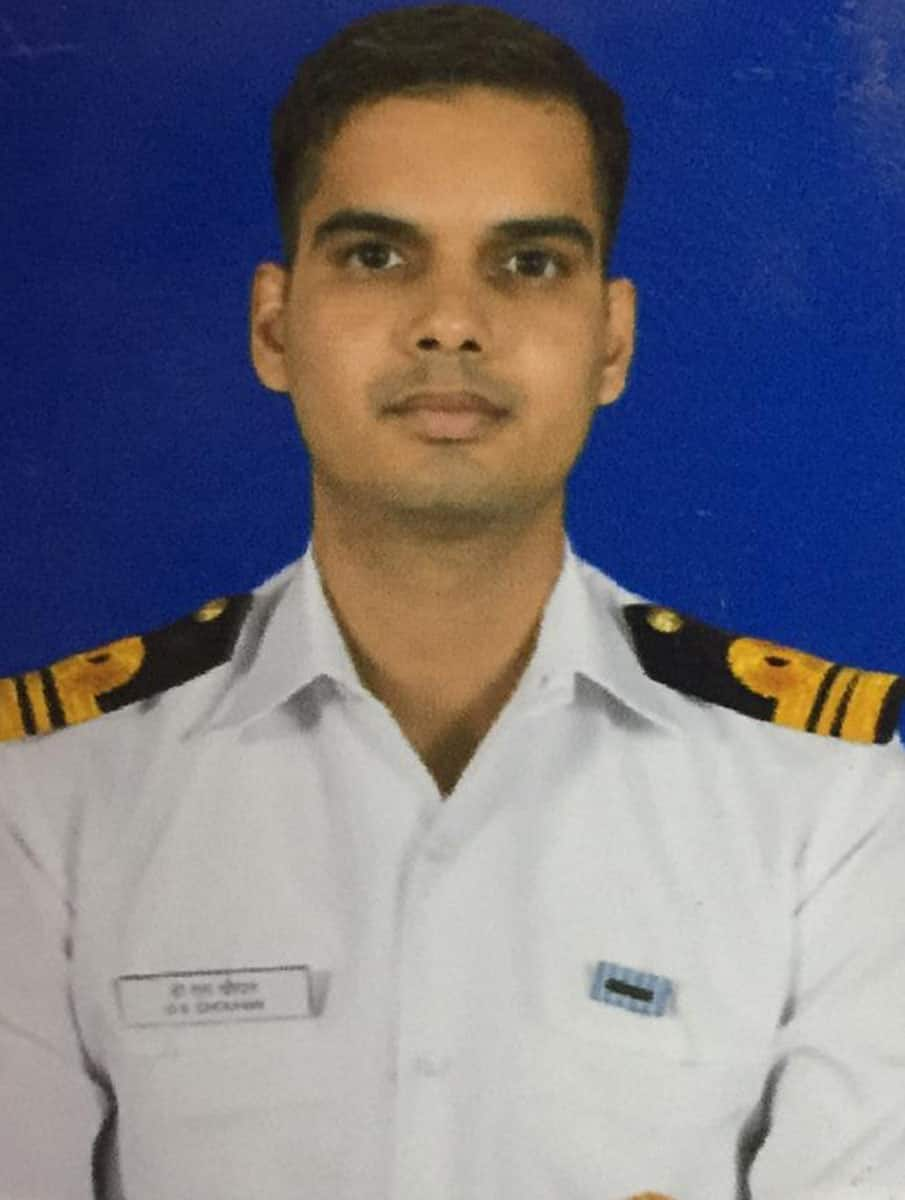Fire on board aircraft carrier INS Vikramaditya; Lt Cdr DS Chauhan dies trying to douse the blaze
The fire was brought under control by the ship’s crew swiftly preventing any serious damage affecting the ship’s combat capability.
Trending Photos
A fire broke out on board aircraft carrier INS Vikramaditya on Friday morning when the ship was entering the harbour in Karwar. Navy officer Lieutenant Commander DS Chauhan died while trying to douse the blaze. The fire was brought under control by the ship’s crew swiftly preventing any serious damage affecting the ship’s combat capability.
According to a statement issued by the Government of India's Defence Wing, Lt Cdr DS Chauhan bravely led the firefighting efforts in the affected compartment. While the fire, which broke between 9-9:30 am, was brought under control, the officer lost consciousness owing to the smoke and fumes during the firefighting efforts.
The brave officer was immediately evacuated to the Naval Hospital at Karwar, INHS Patanjali, for treatment. However, the officer could not be revived. Navy has ordered a Board of Inquiry to probe the incident.

(Image courtesy: ANI)
INS Vikramditya was supposed to take part in the Varuna naval exercise from May 1 with the French Navy which is sending its aircraft carrier FNS Charles de Gaulle for the same.
INS Vikramaditya is India's only operational aircraft carrier at present. It is 284 metres long and has a maximum beam of about 60 metres. Standing about 20 storeys tall from keel to the highest point, the warship has a total of 22 decks. INS Vikramaditya has the Short Take-Off But Arrested Recovery (STOBAR) system and is capable of carrying over 30 aircraft including MiG-29K fighters along with Kamov 31, Kamov 38, Seaking, Advanced Light Helicopter Dhruv and Chetak rotatory wing planes.
The aircraft carrier has a strength of 1,600 personnel on board. With a capacity of over 8,000 tonnes of Low Sulphur High Speed Diesel, the warship has a range of over 7,000 nautical miles (13000 kms). Its maximum speed is 30 knots (55.5 km/hour) and she is powered by 8 new generation steam boilers generating a total output power of 180,000 SHP. These boilers power four propellers, each greater in diameter than twice the height of an average male.
The power generation capacity onboard is about 18 megawatts enough to cater to the lighting requirement of a mini city. An extensive revamp of sensors including fitment of Long Range Air Surveillance Radars, Advanced Electronic Warfare Suite makes the ship capable of maintaining a surveillance bubble of over 500 kms around the ship.
The fourth generation MiG 29K swing role fighter is the main offensive platform and has a range of 2,000 km. The air dominance fighter carries an array of weapons including anti-ship missiles, Beyond Visual Range air-to-air missiles, guided bombs and rockets.
The ship is equipped with state of the art launch and recovery systems along with aids to enable smooth and efficient operation of ship borne aircraft. Major systems include the LUNA Landing system for MiGs, DAPS Landing system for Sea Harriers and Flight deck lighting systems.
The heart of the operational network that infuses life into the combat systems onboard the ship is the Computer-aided Action Information Organisation (CAIO) system, LESORUB-E, with the capability to gather data from ship’s sensors and data links and to process, collate and assemble comprehensive tactical pictures. This state of the art system has been specifically designed keeping in mind the essential requirement on the carrier for fighter control and direction.
One of the most prominent equipment fitted on the superstructure is the Resistor-E radar complex. Resistor-E is the automated system designed for providing air traffic control, approach/landing and short-range navigation for shipborne aircraft. This complex along with its various sub-systems provides navigation and flight data to shipborne aircraft operating at extended ranges from the mother ship. The precision approach guidance system aids the fighters on approach to be directed down to a distance of 30 meters short of flight deck. INS Vikramaditya also boasts of a very modern communication complex, CCS MK II, to meet her external communication requirement. Installation of Link II tactical data system allows her to be fully integrated with the Indian Navy’s network centric operations.
Stay informed on all the latest news, real-time breaking news updates, and follow all the important headlines in india news and world News on Zee News.
Live Tv







)
)
)
)
)
)
)
)
)
)
